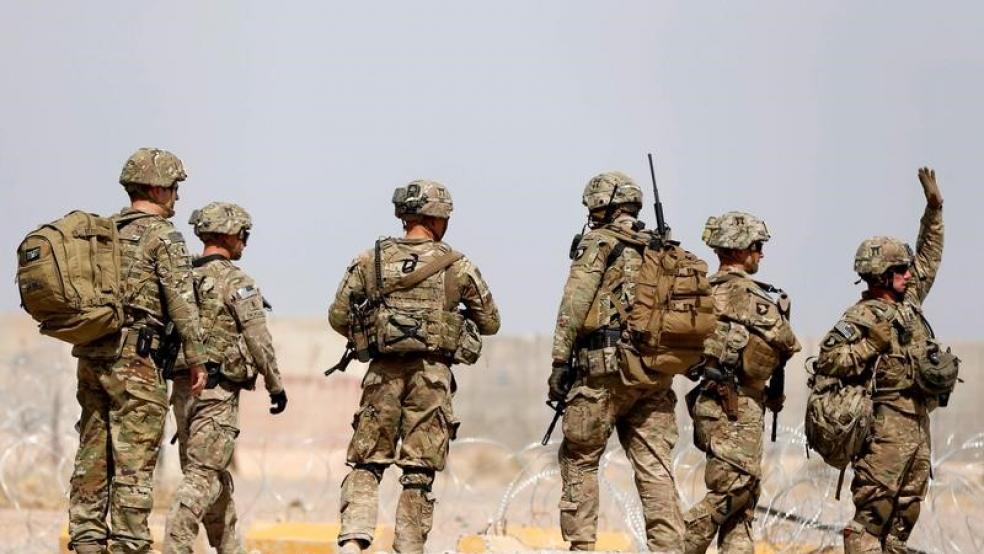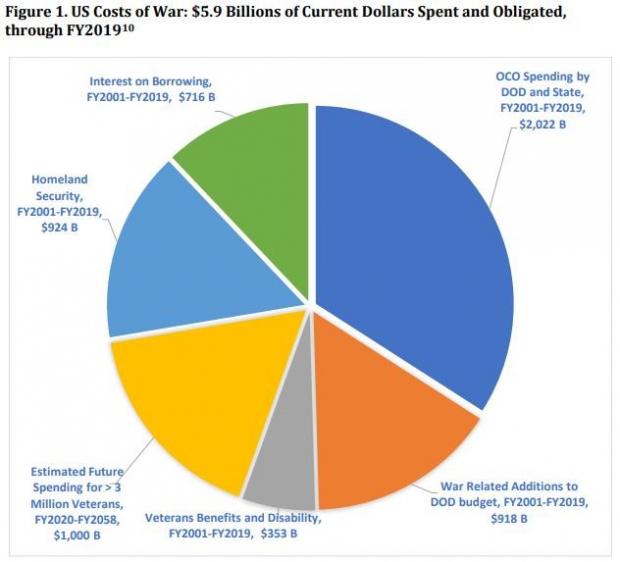The total cost of post-9/11 wars will approach $6 trillion by the end of fiscal 2019, according to an annual report published Wednesday by the Watson Institute for International and Public Affairs at Brown University.
Direct spending for military operations in Iraq and Afghanistan has cost about $1.8 trillion, and adding in military missions in Syria, Pakistan and elsewhere as well as homeland security spending brings the total to just over $2 trillion. But the report says the true long-term cost of the wars is more accurately reflected in its higher number.
“This number differs substantially from the Pentagon’s estimates of the costs of the post-9/11 wars,” the report says, “because it includes not only war appropriations made to the Department of Defense – spending in the war zones of Iraq, Syria, Afghanistan, Pakistan, and in other places the government designates as sites of ‘overseas contingency operations,’ – but also includes spending across the federal government that is a consequence of these wars. Specifically, this is war-related spending by the Department of State, past and obligated spending for war veterans’ care, interest on the debt incurred to pay for the wars, and the prevention of and response to terrorism by the Department of Homeland Security.”
The report adds that, even if the wars are ended by 2023, the U.S. would still be faced with more than $800 billion in additional costs, lifting the total spent or obligated to nearly $7 trillion, not including future interest costs.




